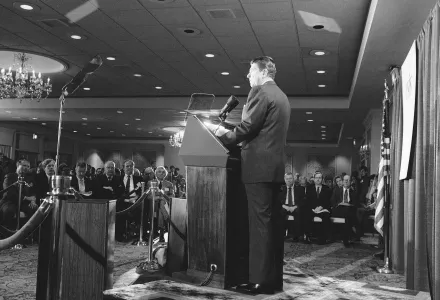
Abstract
Why did the United States withdraw from Lebanon in February 1984? How did new information shape policymakers' proposals to expand, maintain, or terminate the intervention? Drawing upon declassified records, we challenge the conventional narrative that the October 1983 barracks bombing precipitated the American withdrawal from Beirut. Rather than encouraging a consensus around the need to terminate the mission, the significant casualties strengthened senior leaders' determination to stay the course and deepened the divisions within the Reagan administration. Ultimately, only the collapse of the Lebanese national army in early February 1984 — an event unrelated to the October truck attack — forced the intervention's advocates to adjust their expectations for the mission's success and compelled Ronald Reagan to order the Marines' redeployment. By demonstrating the durability of established theories of success and their effect on the interpretation of new information, this history of the Reagan administration's deliberations over the winter of 1983–84 provides insight into presidential decision-making and contributes to our understanding of elite support for costly but limited U.S. military interventions.
Evans, Alexandra T. and A. Bradley Potter. "When Do Leaders Change Course? Theories of Success and the American Withdrawal from Beirut, 1983–1984." Texas National Security Review, vol. 2. no. 2. (March 2019).
The full text of this publication is available via Texas National Security Review.






